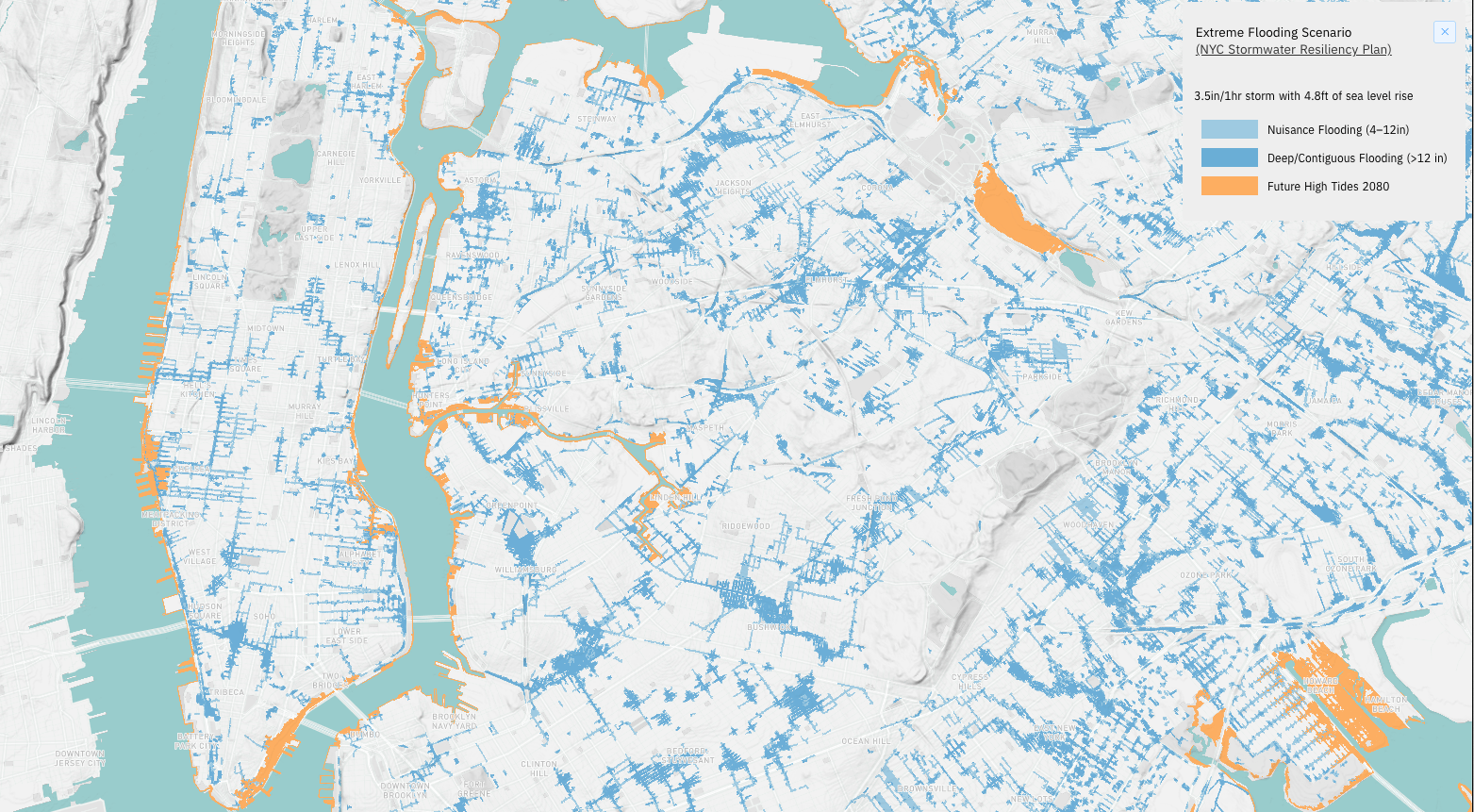With the summer of 2021 still fresh in many people’s minds, NYC’s practitioners and researchers are still navigating the challenges of extreme rain events like Hurricane Ida, which brought record-shattering amounts of rainfall causing severe flooding, loss of life, and damages to property/infrastructure. Shortly before Ida, the City released its first-ever Stormwater Resiliency Plan. With the plan, pluvial (rainfall) flood risk maps were made publicly available, filling a critical data gap. However, other types of data that are still missing may be needed to support urban resilience against flash flooding such as social media, on-site sensor networks, and other crowdsourcing tools to allow communities to report their own experiences and advocate for new interventions. The use of new data types also surface new questions regarding their potential benefits and challenges. This event will convene a conversation between researchers and practitioners concerning the challenges, needs, and opportunities presented by novel data sourcing, processing, and visualization techniques to advance urban climate resilience.
Participants include:
Annie Carforo is the Climate Justice Organizer at WE ACT for Environmental Justice. She is responsible for engaging WE ACT members and residents of Northern Manhattan in the organization’s climate policy initiatives. Prior to joining WE ACT, Annie organized alongside New Yorkers experiencing homelessness on City and State legislation designed to improve access to high quality affordable housing. All of Annie’s organizing and policy experience is grounded in community led activism. She holds a Bachelor’s of Science degree in Human and Organizational Development with a focus on Community Development from Vanderbilt University and is currently pursuing a Master of Urban Planning degree at Hunter College with a focus on equity and sustainability in city planning.
Katie Graziano is the New York Sea Grant (NYSG) Coastal Resilience Extension Specialist based at the Institute. Her work focuses on shoreline management in New York City and State, community flood resilience, and building shared knowledge about Jamaica Bay. Prior to joining the Institute, she worked in the Commonwealth of the Northern Mariana Islands, the Philippines, Washington State and Rhode Island, doing coastal watershed research, management and restoration. She holds a B.A. in Natural Resources from Cornell University and a Masters in Marine and Environmental Affairs from the University of Washington. Katie co-leads the NYC Community Flood Watch Project, which engages residents, scientists and decision makers in documenting tidal flooding, sharing knowledge and building resilience.
Pablo Herreros Cantis is a Research Fellow at the Urban Systems Lab, The New School. He studied environmental engineering at the Polytechnic University of Madrid, Spain, where he specialized in environmental impact assessment. Interested in using his knowledge of Geographic Information Systems and ecology for the benefit of society, he moved to Wageningen University in the Netherlands to complete an MSc in urban environmental management. He is now applying socio-ecological analysis to urban ecosystem services and environmental risks, with special focus on their spatial attributes and their links to social justice. He aims to provide policymakers with evidence-based information for spatial planning and design.
Maddalena Romano is the Director of the Data/Asset Management Unit at New York City Department of Transportation NYC DOT. This unit, part of the Performance and Asset Management Unit in the Commissioner’s Office, uses data engineering to transform data into information for decision makers at NYC DOT. She is one of the NYC DOT liaisons to the FloodNet project.
Andrea Silverman is an Assistant Professor of Environmental Engineering at the NYU Tandon School of Engineering, in the Department of Civil and Urban Engineering. Dr. Silverman’s research focus is on water quality, wastewater treatment, urban flooding, and monitoring and disinfection of waterborne pathogens. Dr. Silverman is a co-director of the FloodNet project (www.floodnet.nyc), which is working to design, build, and deploy low-cost, real-time flood sensors across NYC.

